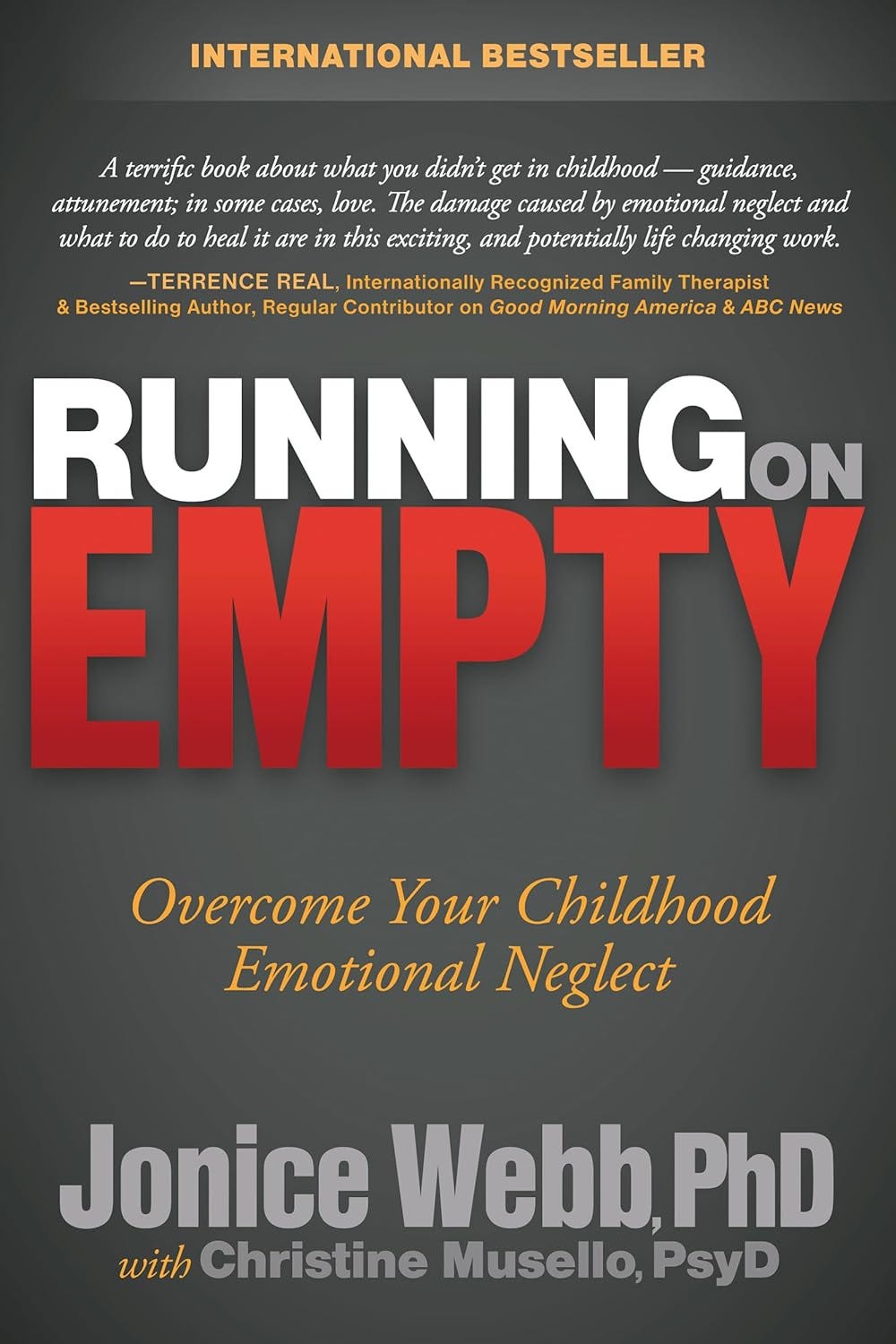Running on Empty: Overcome Your Childhood Emotional Neglect
Discover How Childhood Neglect Affects Your Adult Life and How to Heal in 4 Steps
Good evening, friends! Welcome to the ReadVault Club. I'm Tom Niklas, a seasoned writer and book reviewer. Please subscribe to me and join us in reading 52 books a year together.
I specialize in providing book reviews on personal growth, leadership, family and parenting, mental health, humanities, and history. I aim to assist busy citizens enjoying the benefits of reading books but struggling to find the time.
To help more people to read books easily, don't forget to like, share, and comment below. Your actions are helping more people.
Today, I will talk about a book on parenting called "Running on Empty: Overcome Your Childhood Emotional Neglect.” I was intrigued. We all know what it means to be physically tired, right? To be running on fumes, to feel totally drained. But what's running on empty emotionally? That was a new one for me.
So, what's this book all about? It’s about a powerful force that the author calls Emotional Neglect. She says that Emotional Neglect is like an invisible wound from childhood. It’s not about physical abuse or neglect, but rather the lack of emotional attention and support we may have received growing up.
What is Emotional Neglect?
Firstly, the book does a great job of explaining the difference between Emotional Neglect and Physical Neglect. Physical Neglect is pretty straightforward. It's about not having your basic needs met. Think of a child who isn't getting enough food, clothing, or shelter. That’s Physical Neglect. But Emotional Neglect is much more subtle. It’s about not having your emotional needs met. It’s about not feeling seen, heard, or understood by your parents.
To understand this better, let's imagine a kid named Michael. Michael's parents provide him with everything he needs materially. He has a cozy home, plenty of food, and all the latest gadgets. His parents even drive him to all his soccer practices and games.
But there's a problem. Michael's parents are always busy, distracted, and focused on their lives. They don't listen when Michael tries to talk about his feelings. They don't offer comfort when he’s upset, and they don't celebrate his accomplishments. Michael might even feel like he’s a burden to them. This is Emotional Neglect in action.
What does Emotional Neglect look like in a family?
Now, Emotional Neglect can look different in every family. But here are a few telltale signs.
The second point is that parents might not validate their children's feelings. Imagine Michael coming home from school upset because he didn't make the basketball team. He tries to talk to his parents about it, but they brush him off. They tell him to “toughen up” or “stop being so sensitive.” They might even tell him that he’s being dramatic. And these parents probably think they're just trying to help Michael be strong. But what they're doing is invalidating his feelings. They’re telling him that his emotions are wrong or unimportant.
Thirdly, another thing to watch for is a lack of emotional responsiveness. This means that parents don’t tune in to their kids' emotions. They might not notice when their child is sad, angry, or anxious. And even if they notice, they may not know how to respond in a helpful and supportive manner.
For instance, when Michael is excited about getting a good grade on a test, his parents barely acknowledge it. They might say something quick like, "Good job," but then they go back to what they were doing. They don't take the time to really share in Michael's excitement or celebrate his accomplishment. This kind of emotional unresponsiveness can leave kids feeling unseen and unimportant.
How does Emotional Neglect impact a child?
Emotional neglect can have a deep and lasting impact on children. It can affect their self-esteem, their relationships, and their overall sense of well-being. The book uses the analogy of a car running on empty. If a car doesn't have enough fuel, it won’t run properly. It might sputter, stall, or even break down completely.
Well, it’s the same with people. If we don't get enough emotional nourishment growing up, we won’t be able to function at our best. We might struggle with feelings of emptiness, loneliness, and self-doubt. We might have trouble connecting with others or setting healthy boundaries.
The book gives the example of a woman named Sarah. Sarah grew up with parents who were emotionally distant. They weren’t abusive, but they weren’t very affectionate either. They didn't hug Sarah much, they didn't tell her they loved her very often, and they didn't spend a lot of time talking to her about her feelings. As a result, Sarah grew up feeling emotionally disconnected. She struggled with feelings of loneliness and isolation. She had trouble trusting people and letting them get close to her. She even had difficulty recognizing and expressing her own emotions.
So, that’s a little taste of what Emotional Neglect is all about, and how it can impact a child.
Now, let's explore the various types of emotionally neglectful parents in more detail. Because, no two parents are the same, and Emotional Neglect can show up in many different ways.
Keep reading with a 7-day free trial
Subscribe to ReadVault to keep reading this post and get 7 days of free access to the full post archives.



